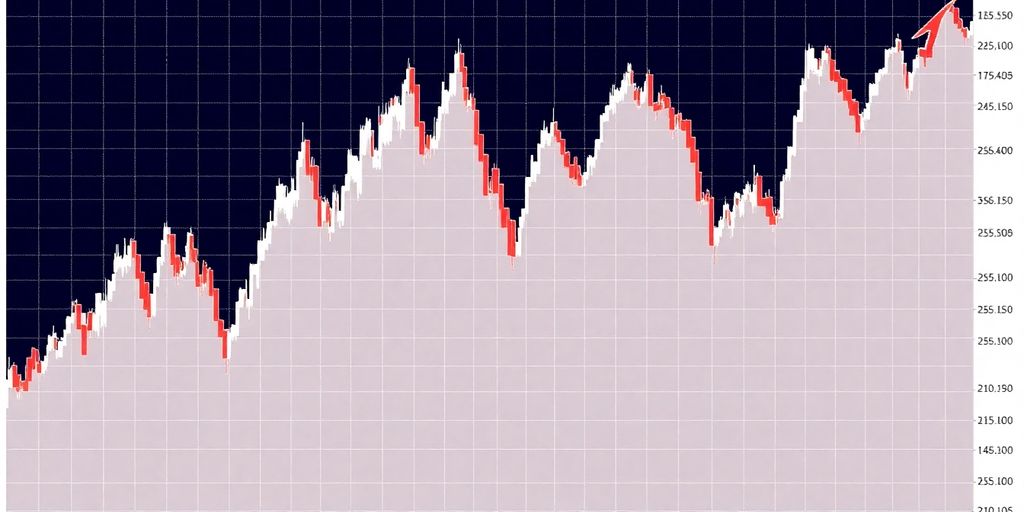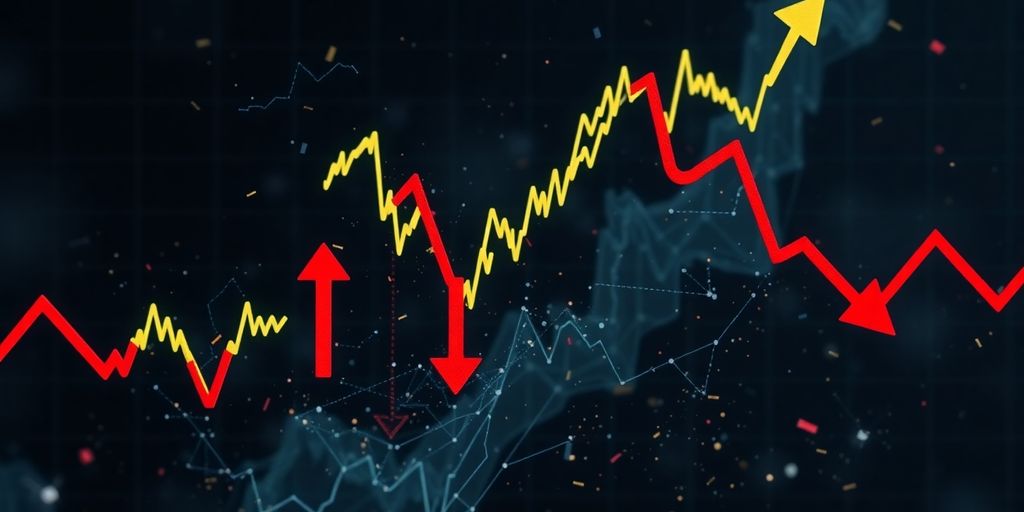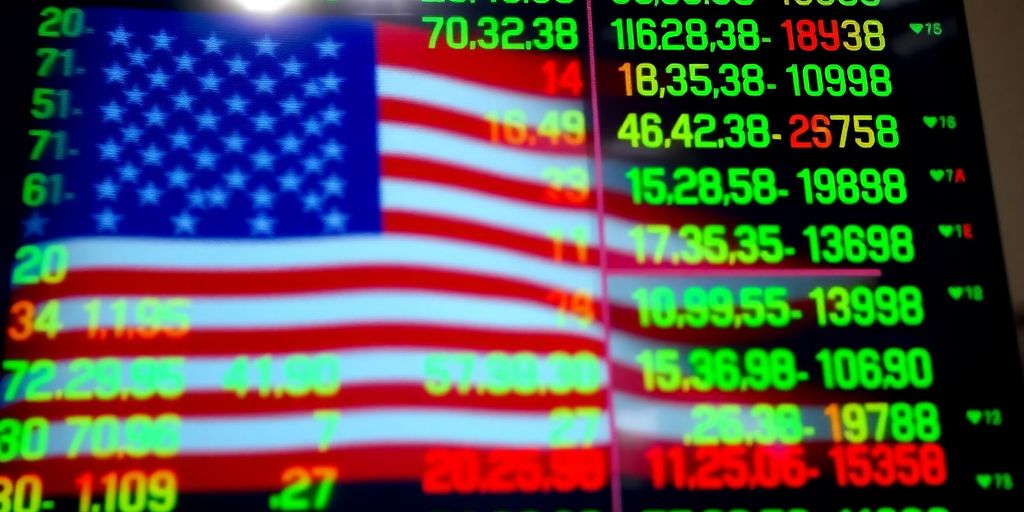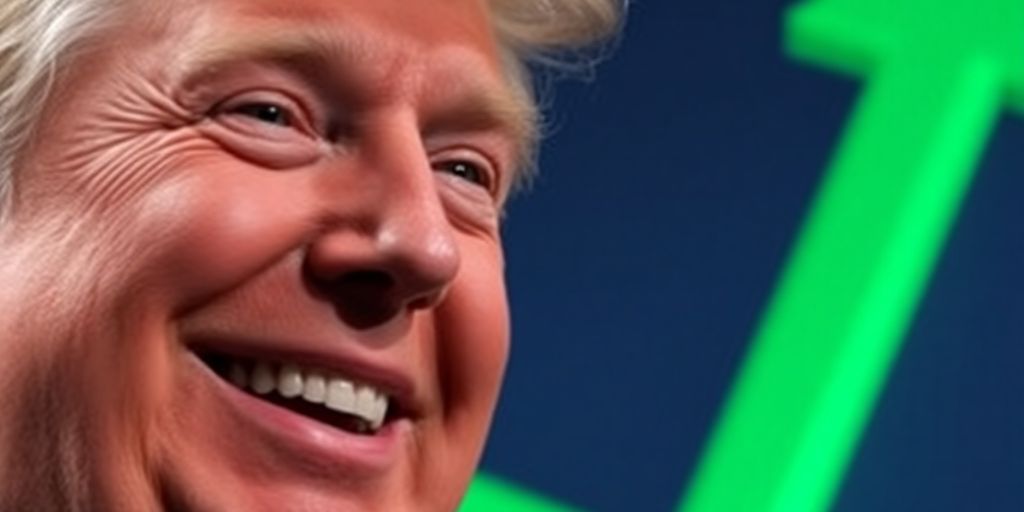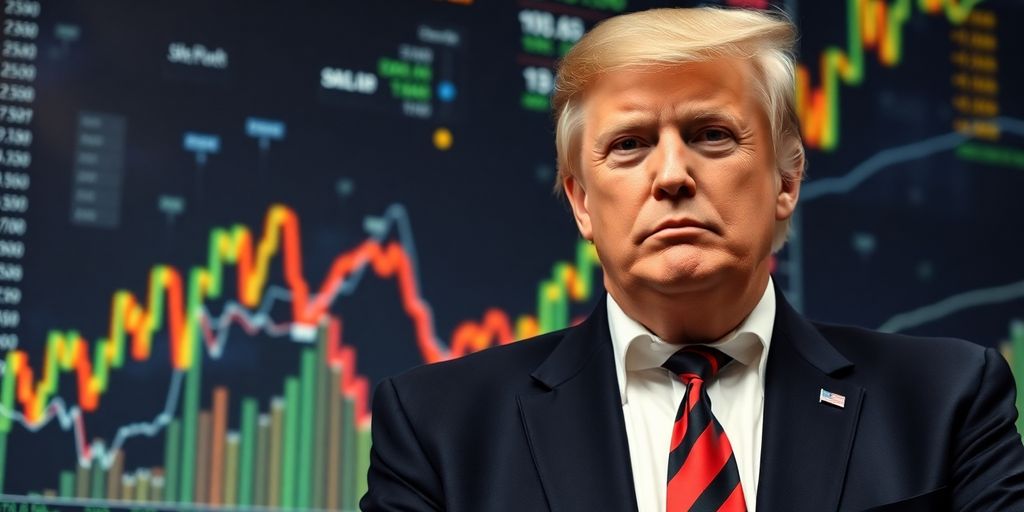US stock markets navigated a turbulent trading week, marked by significant fluctuations as investors grappled with persistent economic concerns and the evolving policy landscape under the Trump administration. Major indices saw periods of sharp declines followed by recoveries, reflecting underlying investor uncertainty about inflation, interest rates, and global trade.
The market's sensitivity to economic data releases and political developments underscored the cautious sentiment prevailing among traders and analysts alike. The ongoing debate surrounding fiscal policy and its potential impact on corporate earnings continues to be a primary driver of market volatility.
Key Takeaways
- Market Volatility: Equities experienced significant swings throughout the week, indicating investor apprehension.
- Economic Concerns: Inflationary pressures and interest rate expectations remain key factors influencing market sentiment.
- Policy Uncertainty: The impact of Trump administration policies on trade and economic growth continues to be a focal point for investors.
Inflationary Pressures and Interest Rate Outlook
Concerns over rising inflation have been a recurring theme, prompting speculation about the Federal Reserve's future monetary policy decisions. While recent economic data has shown mixed signals, the possibility of further interest rate hikes to curb inflation has weighed on market sentiment. Investors are closely monitoring inflation indicators and Fed commentary for clues on the trajectory of interest rates, which can significantly impact borrowing costs for businesses and consumer spending.
Impact of Trade Policies
The administration's approach to international trade has also contributed to market uncertainty. Discussions around tariffs and trade agreements have created apprehension among businesses reliant on global supply chains and international markets. The potential for trade disputes to escalate could negatively affect corporate profits and overall economic growth, leading to cautious investment strategies.
Sector Performance
Performance across different market sectors varied. Technology stocks, while showing resilience, were not immune to the broader market fluctuations. Energy and industrial sectors experienced shifts influenced by commodity prices and infrastructure spending expectations. Financials reacted to interest rate outlooks, while consumer staples offered a degree of stability amidst the broader uncertainty.
Investor Sentiment and Future Outlook
Investor sentiment remains cautious, with many adopting a wait-and-see approach. The coming weeks will be crucial as more economic data is released and the administration's policy initiatives become clearer. Market participants will be looking for signs of sustained economic growth, stable inflation, and a predictable policy environment to regain confidence and drive a more sustained upward trend in stock prices.



